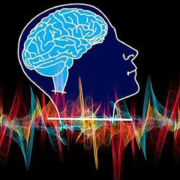Link between Alzheimer’s disease and gut microbiota is confirmed
The gut microbiota could play a role in brain diseases including Alzheimer’s disease. Some gut bacteria release lipopolysaccharides and short chain fatty acids that can reach the brain via the blood and might cause amyloid pathology and neurodegeneration.
Alzheimer’s disease is the most common cause of dementia. Still incurable, it directly affects nearly one million people in Europe, and indirectly millions of family members as well as society as a whole. In recent years, the scientific community has suspected that the gut microbiota plays a role in the development of the disease. A team from the University of Geneva (UNIGE) and the University Hospitals of Geneva (HUG) in Switzerland, together with Italian colleagues from the National Research and Care Center for Alzheimer’s and Psychiatric Diseases Fatebenefratelli in Brescia, University of Naples and the IRCCS SDN Research Center in Naples, confirm the correlation, in humans, between an imbalance in the gut microbiota and the development of amyloid plaques in the brain, which are at the origin of the neurodegenerative disorders characteristic of Alzheimer’s disease. Proteins produced by certain intestinal bacteria, identified in the blood of patients, could indeed modify the interaction between the immune and the nervous systems and trigger the disease. These results, to be discovered in the Journal of Alzheimer’s Disease, make it possible to envisage new preventive strategies based on the modulation of the microbiota of people at risk.
Release date: 13 November 2020
Source: Université de Genève









